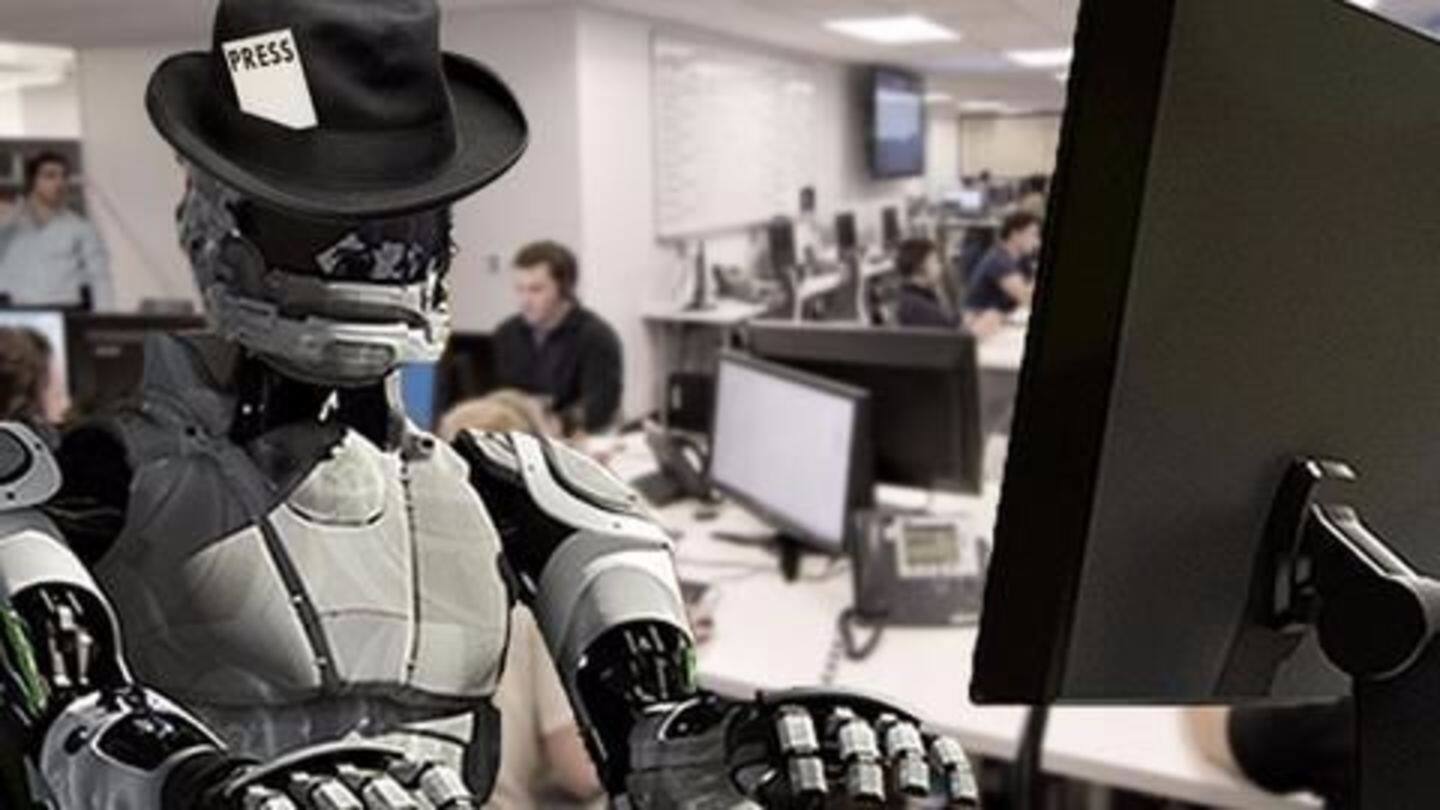
Can robots write news? Well, Google thinks so!
What's the story
When technology evolves, the tremors of it are felt even at the unlikeliest of places. Following automation in several sectors, Artificial Intelligence engine is now going to be your journalist. Google recently gave £622,000 to Press Association (PA) news agency to spend on its Reporters and Data and Robots (Radar) project. The goal is to generate 30,000 AI-written local stories/month. Here's all about it.
News
Making news more "cost effective"
According to PA, the Radar project scheduled for a 2018 launch, will be beneficial to "established media outlets" as well as independent publishers and local bloggers. This project involves five people using open data sources to churn out automated reports on beats such as health, crime, weather and others. PA editor Pete Clifton said, this is a "cost effective" way to create local news.
Radar
Can there be mutual harmony?
Without dismissing the human effort to provide quality content, Pete said, Radar allows harnessing of AI to create content on a scale that is not possible without a large workforce, which many establishments can't afford. The human element can't be ignored and human journalists will continue to play an integral role in the content creation process. However, future job loss scenario can't be ignored.
Reports
The human element is the core of news
Skeptics say that, although, AI may become successful in creating reports that spew up a lot of data to the readers, curation, and analysis will still remain the strength of human storytelling and an integral part of journalistic endeavors. One cannot possibly get the nuances of a political upheaval or a detailed investigative piece from an algorithm. That human touch can't be replicated.
Reporters
It's in the future, future is not far away
Recently a study was conducted by Neil Thurman at City, the University of London and the University of Munich and his peers. AI-driven journalistic pieces were reviewed by human reporters. Several said that these reports were below-par. For now, these algorithms can break factual news, which later can be detailed by humans. But, tomorrow is another day!